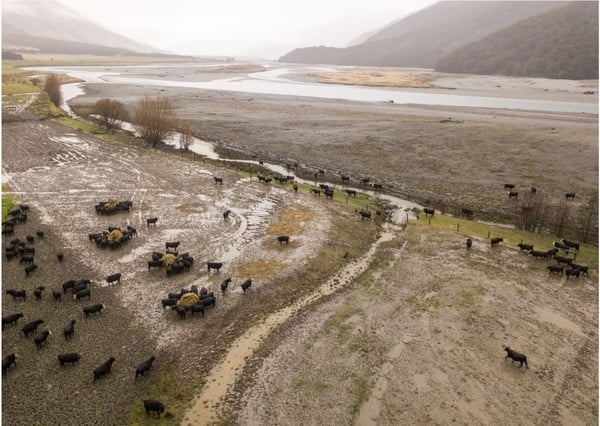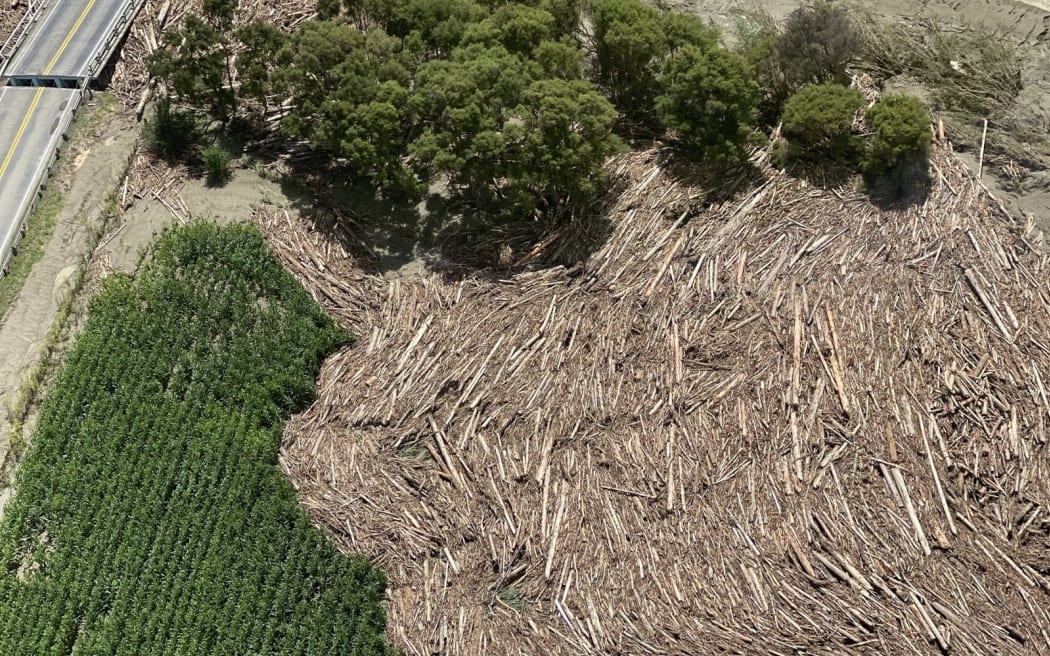Unswimmable rivers, dirty lakes, contaminated drinking water, broken pipes, sewage leaks.
It’s a laundry list of water woes that have become all too common across the country. Freshwater scientists and public health experts along with iwi, hapū and Māori leaders recently and clearly rang the alarm bell about the severity of the freshwater crisis we are facing.
This crisis came about as a direct result of lenient freshwater rules and the prioritisation of polluting industries above the health of the water and the health of communities that rely on it.
Now, the health of rivers, lakes and drinking water is on the brink. We cannot afford to repeat the mistakes of the past. But it looks like the new Government is about to do just that, and worse. Greenpeace was recently sent a letter from the Minister for Resource Management Reform Chris Bishop which, for all intents and purposes, was a declaration of war on nature.
The letter laid out the Government’s plans to launch an unprecedented and all out assault on the nation’s environmental protection laws. In the coming weeks, Luxon’s Government will introduce a new ‘fast-track consent’ bill into parliament. The intent of this bill is to bypass democracy and take a chainsaw to environmental law.
The bill is still under development, and details are scant. What we know so far is that it could give just two Ministers the power to green-light big irrigation dams, destructive seabed mining, huge new roading projects, and mines on conservation land – with little to no public consultation, or consideration of the damage these developments will inflict on the environment.
If the bill does place this virtually unchecked power in the hands of just a couple of ministers, the Government would be able to steamroll over the voices of communities, and disregard the importance of public input in environmental decision-making. It would undermine hapū and tangata whenua engagement, and risks the Government falling well short of their obligations under Te Tiriti o Waitangi.
The new fast track consenting bill is, by design, a way to circumvent the Resource Management Act, but we know that it may also allow Ministers to override the Conservation Act, the Wildlife Act, the Heritage Act and the Reserves Act.
We find ourselves standing on the precipice of an unprecedented and entirely preventable environmental catastrophe. We have seen the consequences of such unilateral actions before and we know what happens next.
In 2010, the last National-led Government sacked the Canterbury Regional Council and installed unelected commissioners. Through Official Information Act requests, the Press uncovered a key reason the Government made this undemocratic move: to ensure that large-scale irrigation and conversion of land into dirty dairying would proceed at pace.
Now, more than a decade on, Canterbury’s rivers, lakes and drinking water are among the most polluted and contaminated in the country. The waters of Te Waihora (Lake Ellesmere) now serve as a green and putrid warning of the devastation caused by large-scale irrigation and dirty dairy.
Yet, Luxon’s Government looks to repeat history – and this alarming fast-track consenting proposition is just the beginning.
Later this year, they plan to repeal Te Mana o te Wai, a key part of the freshwater laws, which directs councils to put the health of the waterways and the health of the people first, before they can issue resource consents to industries to use or pollute water. After the Government has scrapped Te Mana o te Wai, they plan to “replace” the rest of New Zealand’s freshwater protection rules. Given the Government’s Luxon’s strong support for dirty dairy dams across the country, it’s likely that ‘replace’ really means dismantle.
The latest version of the freshwater rules that the Government wants to get rid of are not perfect, but they are the best we have ever had. Those rules are essentially the only checks and balances that exist in New Zealand on intensive dairy’s environmental impacts.
Prior to these rules, the dairy industry was allowed to expand and intensify virtually unchecked, despite clear evidence of the strain it would place on freshwater. Large-scale irrigation was approved, which enabled the mass conversion of land into intensive dairy. In the absence of restrictions, the dairy herd swelled to nearly twice its size since 1990, fuelled by irrigation, synthetic fertiliser and imported feed.
Repealing Te Mana o te Wai and dismantling the freshwater rules will only allow intensive dairy to continue on business as usual, even though it is clear that for the health of our communities and the freshwater ecosystems we love and rely on, change is both necessary and urgent.
The waters might be muddy, but one thing is crystal clear. Luxon has launched a war on water. On the battlefield, he will certainly meet the thousands of New Zealanders whose connection to the rivers that weave through our communities runs deep.
The question is, has Luxon’s training as an airline CEO prepared him for this battle? Is he ready to face the rural families whose water is already so contaminated with nitrate that it is no longer safe to drink and defend his plans to them?
If Luxon and his Government are intent on further degrading the country’s freshwater and drinking water supplies for their dirty dairy friends, they should expect to have a significant fight on their hands.

Every New Zealander should be able to swim in clean rivers and know that the water coming out of their kitchen tap is safe to drink.
Take ActionGen Toop is a freshwater advocate and member of the Greenpeace Aotearoa board.




